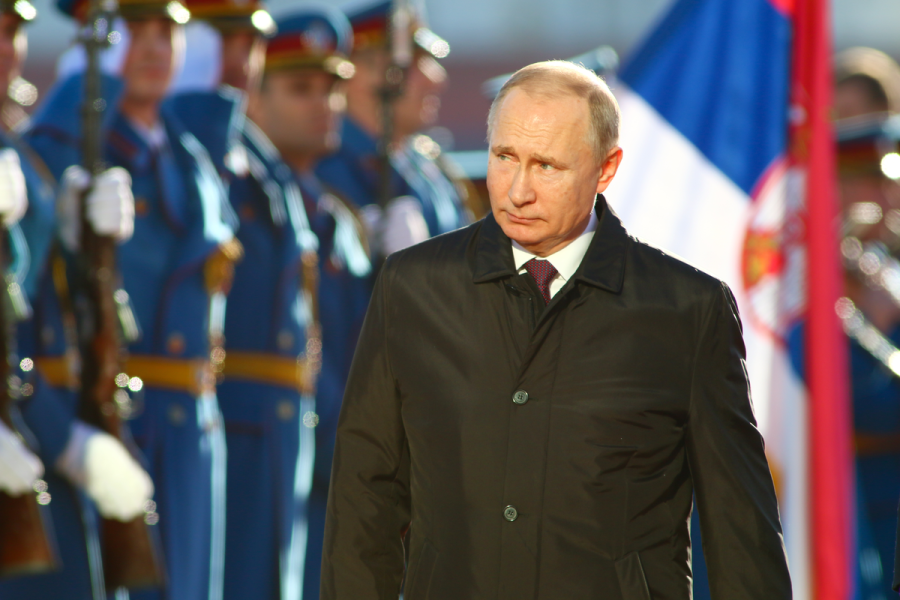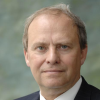Columns
Potemkin Putin
While his cronies continue on enriching themselves, the country's secular decline is becoming too obvious to ignore.
Anders Åslund
Since Vladimir Putin came to power in 2000, Russia has experienced several waves of popular unrest. In 2005, senior citizens protested against pension reform, and in 2011-2012, thousands of Muscovites demonstrated in response to an obviously fraudulent election in which Putin returned to the presidency after a brief stint as prime minister. Through it all, Putin has proven to be politically bulletproof.
But now, a new wave of protests is sweeping the country, and there are good reasons to think this time might be different. Putin has become ever more repressive and non-responsive to public opinion. Cloistered in isolated palaces, he has become what opposition leader Alexei Navalny calls a 'grandpa in his bunker.' Despite the Kremlin’s attempt on his life last year, Navalny recently released a damning documentary alleging that Putin has funnelled his ill-gotten gains toward the construction of a massive secret palace on the Black Sea.
Putin’s next big political test will come in September, when Russia holds State Duma (legislative) elections. Putin will have nothing meaningful to offer the Russian people. After benefiting from robust economic growth of around 7 percent per year during his first two terms (2000-2008), he now presides over a stagnant economy. Since peaking at $2.3 trillion in 2013, Russia’s GDP has fallen by more than one-third, to $1.5 trillion. In the space of just four years (2014-2017), the country’s standard of living fell by 12.4 percent. And after remaining flat through 2018-2019, it declined again in 2020.
Putin has long relied on the Russian consumer as the ultimate guarantor of his megalomaniacal ambitions. Nonetheless, in 2018, following the sharp decline in personal disposable incomes, he hit Russian households with a draconian pension reform that was so ill-received that even his official popularity rating sank. Now, after six years of austerity, Russian economists Vladimir Milov and Sergei Guriev tell me that Russians are quickly running out of savings.
There are three main reasons for Russia’s economic stagnation: Putin’s authoritarian kleptocracy, Western financial sanctions, and low oil prices, which were imposed in response to Russia’s military aggression in Ukraine since 2014.
The first factor seems to be the most important. During his first two terms, Putin benefited from the liberalising reforms enacted in the 1990s under his predecessor, President Boris Yeltsin, and then-acting Prime Minister Yegor Gaidar. But after consolidating power during his first term, Putin used his hold on the courts to start seizing profitable private enterprises, which he then awarded to his St. Petersburg cronies.
Russian officials dismiss Western sanctions as ineffective, even though they constantly complain about them. But sanctions are easy to measure, so this contradiction need not confuse matters. At the end of 2013, the Central Bank of Russia put the country’s total foreign indebtedness at $729 billion. Yet by the end of 2020, that figure had fallen to $470 billion, and other emerging economies had expanded their foreign debts by a similar proportion. This indicates that in the years since Western sanctions were applied, Russia has been forced to forego $259 billion of foreign credits that otherwise could have gone toward investment and thus economic growth.
Desperate to avoid blame himself for Russia’s weak economy, Putin has seized on the collapse in oil prices. But even though he seems to talk about little else, he still has done nothing to diversify the Russian economy’s sources of growth. A consummate petrostate, Russia’s currency, exports, and imports all suffer when oil prices decline.
Worse, the two factors that Putin would prefer to ignore—kleptocracy and a sanctions-provoking foreign policy—have increasingly scared off foreign investors. Between 2014 and 2019, Russia’s annual net inflows of foreign direct investment averaged slightly less than 1.5 percent of GDP—a negligible figure, particularly compared to the preceding five-year period, when it was approximately double.
Viewed in these terms, Putin is easy to comprehend. He is primarily concerned with his own hold on power, which he maintains by enriching himself and his cronies, and by assuming a geopolitical posture that will bolster his domestic image. Here, he has reaped the dividends of two past successes: the brief war in Georgia in August 2008, and the annexation of Crimea in March 2014.
According to polling by the Levada Center, an independent Russia-based think tank, Putin’s popularity reached a record-high 88 percent immediately following the Georgia conflict, and surged to similar heights again after March 2014. Over the past three years, however, it has declined from the 80 percent-plus range to 64 percent, and the public’s trust in him has fallen to half that.
Russia is divided. While a liberal one-third of the population opposes Putin, another third supports him, and the remaining third is agnostic. The question, then, is when the fence-sitters will finally turn against the regime. Assuming that most are sensible opportunists, it is likely to happen whenever they perceive that Putin has already lost.
And still, despite his increasingly desperate domestic position, Putin has done essentially nothing to placate the Russian public. Although he issued an 'Executive Order on Russia’s National Development Goals through 2030' last summer, that document turned out to be far less substantive than it sounds.
Making matters worse for himself, Putin has promised to ensure 'steady growth in household incomes and pensions not lower than the rate of inflation,' implying that he does not foresee any increase in the standard of living for the next decade. Apparently, Putin is no longer even trying to hide the fact that regime maintenance is his sole concern.
Russia is declining not just economically and technologically, but also in demographic terms. Last year, its population shrank by almost 700,000, owing in no small part to the emigration of qualified young people. That is a sure sign that Putin’s Russia is shakier than most believe.




 14.24°C Kathmandu
14.24°C Kathmandu















